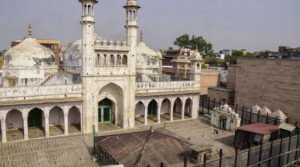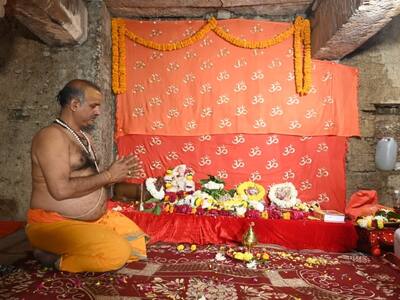The Supreme Court on Thursday i.e., 1st February directed the Masjid Intezamia Committee of Varanasi’s Gyanwapi mosque to file an appeal with the Allahabad High Court against the Varanasi District Court’s ruling allowing Hindus to worship to deities within the southern celler of the Gyanvapi mosque.
Lawyers for the Masjid Committee petitioned the Supreme Court Registrar for an expedited hearing on their appeal to maintain the status quo at the mosque site. The lawyers stated that the Registrar informed them that Chief Justice of India DY Chandrachud had directed them to approach the High Court. The registrar informed CJI’s direction to the lawyers of mosque committee at around 7 am this morning.
Application filed for Gyanvapi Mosque by the Counsels for the Masjid Committee

In their application, counsel Nizam Pasha and Fuzail Ahmad Ayyubi said that under the cover of the order, the local government has put a huge police presence on the site and is in the process of dismantling the grills on the mosque’s southern side.
“There is no reason for the administration to undertake this task in hot haste in the dead of the night as the order passed by the Trial Court had already given them one week to make the necessary arrangements. The obvious reason for such unseemly haste is that the administration in collusion with the plaintiffs is trying to foreclose any attempt by the Mosque Managing Committee to avail of their remedies against the said order by presenting them with a fait accompli,” the letter said.
The complex Gyanvapi issue
The present-day matter pertains on the fact that there was a huge Hindu temple before the construction of the Gyanvapi Site.
In a significant move in the legal struggle over the mosque, which is adjacent to the Kashi Vishwanath temple, the district court decided on Wednesday that a priest may pray before the idols in the Gyanvapi Masjid’s cellar. The prayers would be led reportedly at regular intervals by a “pujari” appointed by the Kashi Vishwanath temple trust and the petitioner, who claims his grandpa performed puja in the crypt until December 1993.
The court has ordered the municipal authority to arrange for prayers in the cellar within seven days. Judge A K Vishvesha issued the decision the day after the Archaeological Survey of India (ASI) released a report on the mosque complex.
The ASI survey and the Allahabad High Court
Last August, the Supreme Court authorised the Archaeological Survey of India (ASI) to survey the mosque grounds, except the ‘wuzukhana’ region where a ‘Shivling’ was said to have been discovered.

The ASI conducted a survey to ascertain if the mosque was erected on top of an existing Hindu temple construction. The district judge granted permission for this survey in July, and the Allahabad High Court maintained the decision in August.
On January 24, the Varanasi court permitted the ASI to release its scientific survey report on the Gyanvapi Mosque. According to the ASI survey report, which has recently been made public, a massive Hindu temple existed prior to the construction of the Gyanvapi mosque.
It indicates the reuse of pre-existing temple elements, such as pillars, in the mosque’s construction. The ASI believes that reuse of the inscriptions implies the destruction of prior constructions, with their elements reused in the construction or repair of the present Gyanvapi mosque.











Comments 2